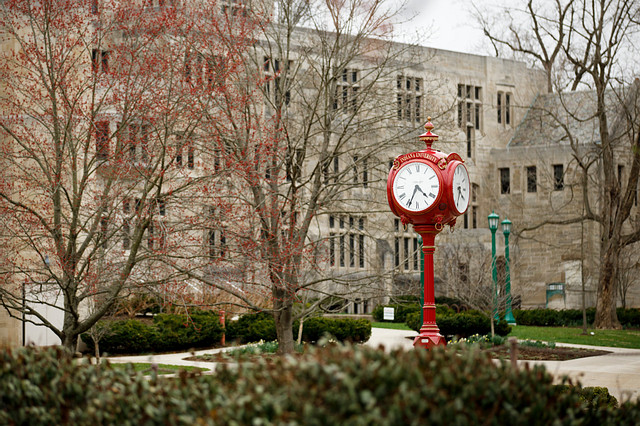Notions of masculinity are often introduced within familial contexts at an early age, shaping many Latino men’s beliefs about what it means to be man. For example, they may learn success requires independence. This idea may transfer from the home to the university setting and can influence how Latinos interact with institutional agents. Latino men’s internalized understandings of masculinity may be exacerbated for those who are gay, as they simultaneously navigate heteronormative institutional contexts while coming to terms with their sexuality. Thus, through portraiture methodology, Dr. Oscar E. Patrón and his co-author, Dr. Fernando Rodriguez, explored, how do notions of masculinity influence how undergraduate gay Latinos connect with university staff and faculty?
How Do Notions of Masculinity Influence Interactions for Gay Latino Men in College?

Key Findings
- Gay men established connections with faculty and staff within the boundaries of academic topics, and with minimal depth beyond that, to avoid revealing their sexualities.
- Women in faculty and staff roles served as points of connection beyond academic support. It was in these relationships that participants expressed feeling like they could be vulnerable and open to expressing emotions they were conditioned to internalize—especially in front of men.
- Participants also resisted developing connections with staff and faculty. This behavior was exhibited through connections that limited their personal interaction and/or required minimal contact.
Introduction
Within the broader discourse of Latino men in higher education, scholars note that conceptualizations of masculinity are central to the successful attainment of a college education. For example, constructions of masculinity have the ability to influence whether or not an individual decides to seek out academic assistance in times of difficulty. Past research1 show that troubled masculinities among undergraduate men are linked to poor help-seeking behaviors and academic underachievement. Due to notions of stoicism and independence associated with masculinity, men may find it difficult to present in ways that move beyond its traditional conceptions. Some qualities associated with masculinity can also influence if and how men develop relationships with others. For Latino men in particular, establishing meaningful connections within their institutional setting can present a set of struggles for a collection of reasons. For instance, orgullo (pride), which is directly associated with cultural ideals of masculinity emphasizing individual power and control, can result in sentiments of having to face college experiences and challenges alone.
Masculinities
Masculinity is understood as a product of cultural norms and expectations regarding appropriate male behavior in a given society.2 Despite widely held conceptions, some scholars argue that masculinities are defined in racially, culturally, and class-specific ways.3 The way one understands and enacts what it means to be masculine is powerfully shaped by social groups and contexts. For Latinos, masculinity has been characterized as being powerful, restricting the display of any characteristics that are stereotypically associated with women, restricting emotional engagement with other men, and being the heads of their households. Still, diverse understandings of masculinities exist among Latinos (e.g., relational engagements of manhood, positive ethical positionings, and rejection of hegemonic masculinity).3
Systems of Oppression
It is important to note that while stigmatized notions of masculinity may be common among Latina/o communities, they are not inherent to Latinas/os in any way. Social identities and the expectations structurally attached to them are connected to interlocking systems of oppression. To this end, research suggests that heterosexism and patriarchy influence homophobic perspectives held by Latinas/os, devaluing any identity that is not heterosexual and leading to the oppression of queer Latinos for not conforming to such ideals.4 Heteronormativity functions to deny certain rights and privileges granted to heterosexual people based on various identities. As a result, it is important to scrutinize the manifestation of social structures and work towards dismantling systemic oppression.
Conclusions
Participants’ portraits provided insights into the ways Latina/o constructions of masculinities primarily learned in their homes shaped Latino men'scampus experiences, especially when deciding to connect, or not connect, with university staff and faculty. Notably, participants most commonly described embodying masculinity through self-sufficiency, independence, reserved and collected behaviors, and resistance to seeking or requesting help. While such forms of masculinity are pervasive in Latina/o communities, they are not inherent or exclusive to Latinas/os. Instead, masculine ideologies and gendered expectations are influenced by systems of oppression.
References
- Harris III, F., & Harper, S. R. (2015). Matriculating masculinity: Understanding undergraduate men's precollege gender socialization. Journal of the First-Year Experience & Students in Transition, 27(2), 49-65.
- Wilson, B. D., Harper, G. W., Hidalgo, M. A., Jamil, O. B., Torres, R. S., Fernandez, M. I., & Adolescent Medicine Trials Network for HIV/AIDS Interventions. (2010). Negotiating dominant masculinity ideology: Strategies used by gay, bisexual and questioning male adolescents. American Journal of Community Psychology, 45(1-2), 169-185.
- Hurtado, A., & Sinha, M. (2016). Beyond machismo: Intersectional Latino masculinities. University of Texas Press.
- Patrón, O. E. (2020). Complicating traditional understandings of familismo: Precariousness in the lives of queer Latino men in college. Journal of GLBT Family Studies. Advance online publication. https://doi.org/10.1080/1550428X.2020.1711838
Meet the Researcher
Oscar E. Patrón is an Assistant Professor of Higher Education and Student Affairs. Prior to his appointment, Patrón served as a Postdoctoral Fellow with the Center for Research on Race and Ethnicity in Society at Indiana University. Patrón’s research examines the ways that historical forms of oppression (e.g., racism, heterosexism) influence the lives of minoritized people within postsecondary contexts.


